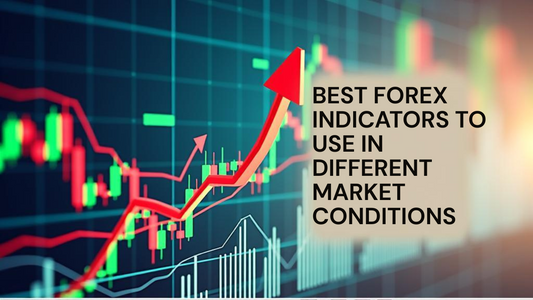
Fundamentally Analyzing Currency Markets in a Geopolitical Context
Share
When it comes to currency markets, understanding the geopolitical context is crucial for making informed decisions. In this blog post, we will explore the fundamentals of analyzing currency markets and how geopolitical factors can impact currency values.
What is fundamental analysis?
Fundamental analysis is a method used to evaluate the intrinsic value of an asset, such as a currency. It involves examining various economic, financial, and geopolitical factors that can influence the value of a currency. By analyzing these factors, traders and investors can make predictions about the future direction of a currency's value.
Why is geopolitical context important?
Geopolitical events, such as political instability, trade disputes, and economic sanctions, can have a significant impact on currency markets. For example, when there is political uncertainty in a country, investors may lose confidence in its currency, leading to a decline in its value. On the other hand, positive geopolitical developments, such as trade agreements or political stability, can strengthen a currency.
Key factors to consider
When analyzing currency markets in a geopolitical context, there are several key factors to consider:
Economic indicators
Economic indicators, such as GDP growth, inflation rates, and interest rates, can provide insights into the overall health of a country's economy. Positive economic indicators often lead to a stronger currency, while negative indicators can weaken a currency.
Political stability
Political stability is an important factor in currency analysis. Countries with stable political systems and strong institutions tend to attract foreign investments, which can strengthen their currencies. Conversely, political instability can lead to currency depreciation.
Trade relations
Trade relations between countries can have a significant impact on currency values. Trade agreements and partnerships can boost a country's exports and strengthen its currency. On the other hand, trade disputes and tariffs can negatively affect a currency's value.
Global events
Global events, such as natural disasters, terrorist attacks, or geopolitical conflicts, can create volatility in currency markets. These events can disrupt trade, impact investor sentiment, and lead to currency fluctuations.
Analyzing currency markets
When analyzing currency markets, it is important to gather and analyze relevant data and news from reliable sources. Economic reports, central bank statements, and geopolitical news can provide valuable insights into the factors influencing currency values.
Traders and investors often use technical analysis tools, such as charts and indicators, to identify trends and patterns in currency markets. Combining technical analysis with fundamental analysis can help traders make more informed decisions.
Conclusion
Fundamentally analyzing currency markets in a geopolitical context is essential for understanding the factors that can impact currency values. By considering economic indicators, political stability, trade relations, and global events, traders and investors can make more informed decisions and navigate the complexities of currency markets.



